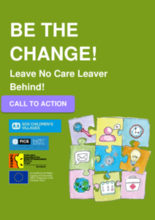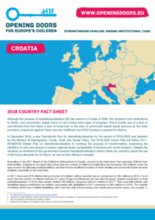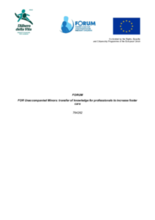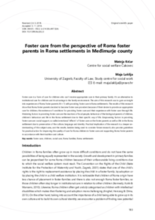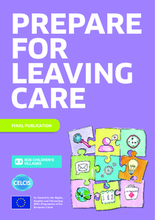Displaying 11 - 20 of 44
This study aims to advance understanding of social workers’ perceptions of the circumstances necessitating and preventing the placement of children with disabilities (CwDs) in institutions.
This chapter from the book Education in Out-of-Home Care assesses a pilot project aimed at improving the school-based learning of children in residential care in Austria, Croatia, France, Germany and Spain.
Join this webinar to walk through the PROMISE Child Participation Tool and to discuss approaches and considerations for soliciting children’s views on their Barnahus experience.
The purpose of this webinar is to shed light on the specific experiences and issues of unaccompanied and separate girls in the European Response.
The content of this Call to Action comes from what was heard from young people with care experience as well as from the professionals working with them. It outlines three primary actions to realize careleavers' rights in the law and in practice and to allocate adequate funds for realizing these rights.
This factsheet highlights the developments and challenges still ahead in Croatia and offers key recommendations to the EU and the national government to ensure that children are cared for in family-based settings.
This article is written as part of the FORUM project (FOR Unaccompanied Minors: transfer of knowledge for professionals to increase foster care), an EU funded project which sought to enhance the capacity of professionals to provide quality foster care for unaccompanied migrant children, primarily through the transfer of knowledge. The article aims to contribute to this transfer of knowledge by bringing together literature which is of relevance to professionals developing or enhancing foster care services for unaccompanied migrant children.
The aim of this research was to gain an insight into experiences of Roma foster parents with providing foster care in Roma settlements in Croatia.
The Eurochild Conference in Opatija will bring positive examples of how public decision-makers at local, national and European levels are respecting the right of children to participate in decisions affecting them.
This publication from SOS Children's Villages and CELCIS describes the two-year project 'Prepare for Leaving Care,' which aimed to "embed a child rights based culture into child protection systems which improves outcomes for children and young people in particular in the preparation for leaving care," with youth participation at the heart of all activities.

